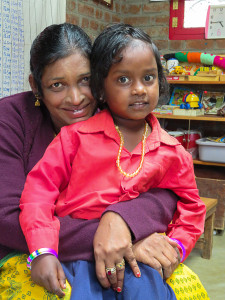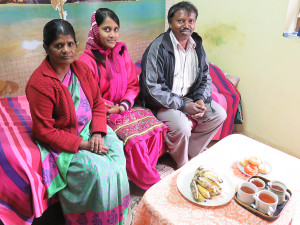Help Kids India and Extravagant Hospitality
Catherine Kidder and the Rev. Thomas Cary Kinder
The Congregational Church of the United Church of Christ,
Bradford, Vermont
May 14, 2017
Fifth Sunday of Easter, Help Kids India Sunday
Psalm 31; John 14:1-14
Top: Hilda Isaac, Executive Director, and Angel, a crèche child. Below: Beulah, Jasminepriya, and Benjamin.
Part I, by Catherine Kidder, Vice President, Help Kids India, Inc.
We know what the crèches do for the children but there are mother stories, too. I’d like to tell you two of them in honor of Mother’s Day. One story belongs to Hilda Isaac, the woman whose vision, dedication and boundless love drives the whole crèche project. The other is about a crèche cook, Beulah, who credits Hilda and her job at the crèche with transforming her life.
Hilda is the executive director of the Betsy Elizabeth Trust, which Help Kids India and your church support. She manages five crèches, two sewing centers for poor women, and a community health center. She oversees thirty staff members, two rickety jeeps, seven properties, and the education, health, and care of 270 children.
Hilda grew up poor in a small coastal village, Porayar, where two of the crèches are now located. Her parents were Dalit, or untouchables, but could read and write. Continue reading Sermon, May 14, 2017, Help Kids India


